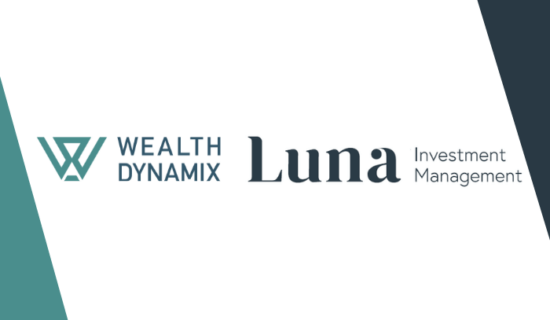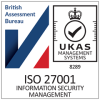Attracting Advisors in a competitive landscape
As the number of high-net-worth individuals (HNWIs) and ultra-high-net-worth individuals (UHNWIs) continues to grow, a worrying decline in wealth management talent is forecast. Cerulli estimates that in the US alone, 37% of all brokers and FAs anticipate retiring within the next 10 years, predicting ‘replacing talent will be a tall task’.
A shortage of experienced relationship managers and financial advisors (Advisors) set against the expectation for firms to service clients more intuitively and personally presents enormous challenges. It’s a context that could feel like the perfect storm for firms seeking to grow their client base and maximise profitability and AUM.
Against this backdrop, the wealth management workforce continues to diversify, particularly across Europe, with banks tapping into the talent and agility of External Asset Managers in addition to in-house staff. Such, yet, it is not just EAMs bringing more demands to the table. Reports suggest the broader workforce is growing increasingly agile in search of better conditions and pay.
Recruitment will be done on their terms
Post-covid, we saw ‘The Great Resignation’ reported in the UK and the US, and it’s seemingly not over yet. A report by PwC in March 2022 states that almost one in five UK workers are likely to change jobs in the next 12 months as they seek improved pay and job satisfaction.
The report, which involved a survey of 2,000 UK workers, found that:
- 18% said they were “very or extremely likely” to switch to a new employer within the next 12 months
- Some 32% also said they were moderately or slightly likely to switch, and 16% were planning to leave the workforce temporarily or permanently
- An increase in pay was the primary motivator for changing jobs (72%), followed by wanting a more fulfilling job (68%) and to “truly be themselves at work” (63%)
- Overall, Gen Z (those aged 24 and under) and Millennial workers (25 to 40-year olds) were most likely to be seeking new jobs, raises or promotions.
- Some 60% would prefer to work fully or mostly from home.
Giving Advisors the tools they need
Given the sentiments and frustrations behind these statistics, it’s vital for firms to consider how to create the optimal wealth management work environment to attract, support and retain financial talent. Although the role of technology within the wealth management industry will inevitably advance, the role of the human advisor is likely to evolve too, shifting from product selection to a focus on client engagement, emotional intelligence and even behavioural coaching. To some extent, automated advice and online services could replace the traditional role of an advisor, providing basic advice and services to clients. However, for more complex advice, human advisors will still be required to provide more personalised advice and services.
Furthermore, technology has limitations, and firms and private banks have a duty of care to their clients. Under the Consumer Duty Act in the EU (and similar legislation and regulation in APAC), clients must be able to access human Advisors when they have a concern or questions and not rely on chat box, Robo advice or FAQ documentation alone.
Despite these concerns, wealth management firms are under pressure to hybridise their services and implement an omnichannel strategy to remain in the AUM run. This means they must not only have the technical capabilities to support their Advisors but also be able to attract new talent in the form of staff or External Asset Managers (EAMs) as others retire or move on.
The good news is that experts predict that younger talent can be attracted to the wealth industry as it embraces more of the products and concepts of the new world, such as cryptos, digital assets, the Metaverse, ESG, sustainability and so forth.
However, to counter the complexities of managing diversifying asset classes and more demanding clients, it is incumbent on firms to not only upskill their staff but to provide a greater level of support through intuitive, integrated technology.
Empowering people through technology: the answer to winning the talent war
Today’s Advisors are grappling with more complexity from increased regulatory measures and clients seeking to take a more active role in their investment, making the role of technology crucial in reducing time lost to repetitive administrative tasks or frustrating workarounds and data silos. And change is already very much underway. As reported by Capgemini, ‘more than half of financial services firms have more than 40% of their customer interactions AI-enabled today – three years ago, this was just one in every 100.’
Firms yet to tap into the considerable time efficiencies and cost savings of an integrated CLM solution will need to focus on four areas: compliance, productivity, differentiation and supporting their (extended) workforce to compete effectively:
- Compliant interactions: Firms must be able to monitor and control their FAs to protect both their clients and their staff from potential liability.
- Tools for productivity: Firms must provide their FAs with the tools and resources they need to be efficient and effective. With more and more FAs working as External Asset Managers (EAMs), the ability to provide a hybrid solution that combines face-to-face interactions and next-best actions with digital capabilities is becoming increasingly important to attract the right people. It is, therefore, worrying that today Compeer reports that fewer than 10% of FAs can manage and service a client request via mobile or tablet device. Yet today, almost all clients expect a more personal service at their convenience and at a lower cost.
- A point of differentiation: To differentiate themselves from others, firms and private banks need to champion a unique capability that can only be found at their institution. This could include lower costs, their hybrid service model, or a focus on assets under management (AUM) growth.
- Support the extended workforce: In exchange for their expertise and agility, the EAM is seeking tools to reduce the administrative burden and enable automated fee calculation, digital onboarding, and event-driven reviews. In the absence of an effective, integrated CLM solution, banks may have multiple, complex systems to navigate. This means, given access to their back-office, the EAM potentially must be an expert in them all – from Core Banking Systems to CRM and Portfolio Management Systems. When attracting EAMs to your firm in the future, factors such as ease of administration will undoubtedly affect your success rate.
The technology is available today to empower and enhance the expertise of FAs, but harnessing it all is the key to success. By investing in technical capabilities like hybrid service delivery models and omnichannel solutions, Wealth Management firms can remain competitive and support their client FAs in a sustainable way.
To read more about how ‘Hybrid Servicing could Transform your Wealth Management Firm’ download our eBook today.
Download the eBook: How Hybrid Servicing Can Transform Your Wealth Management Firm





